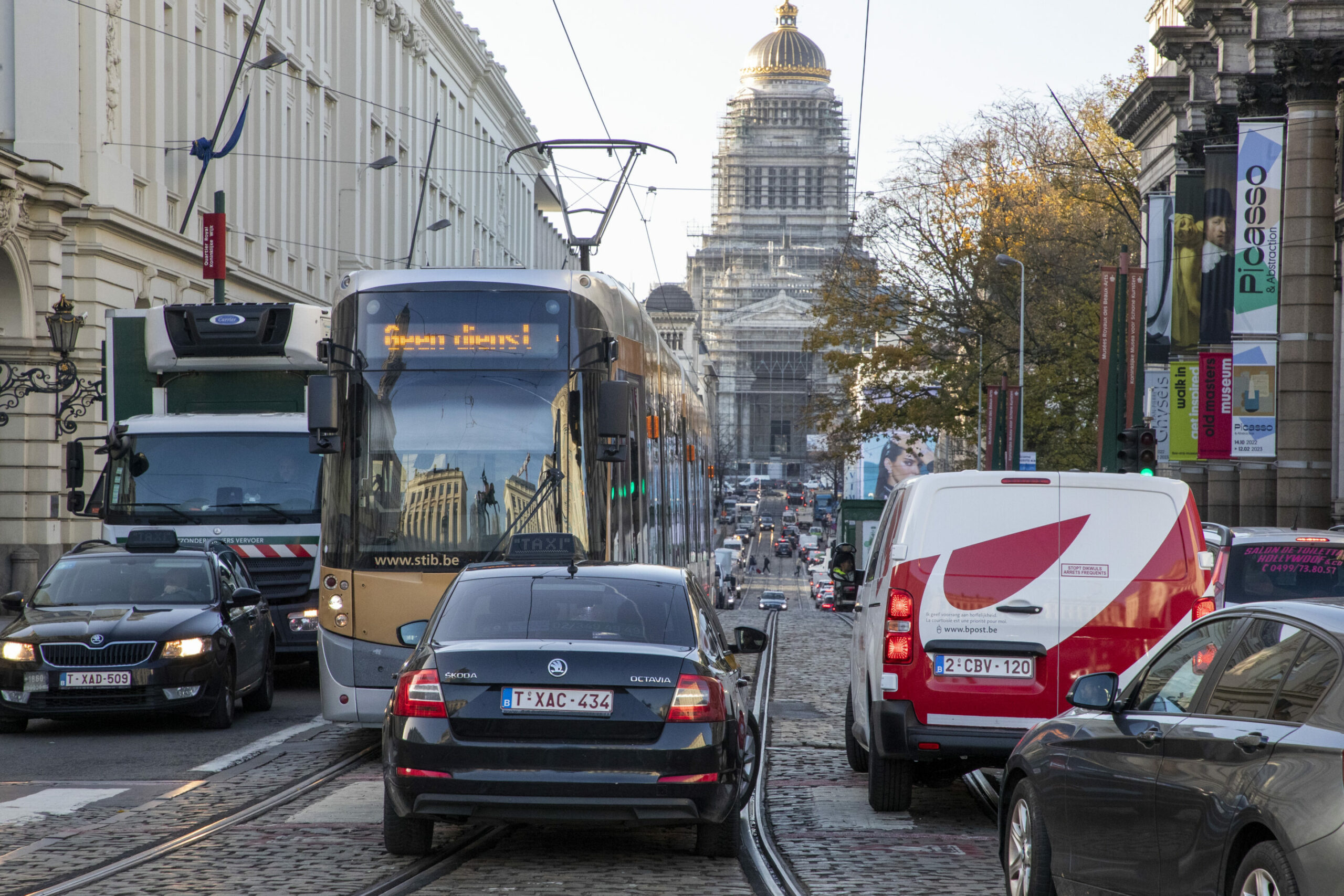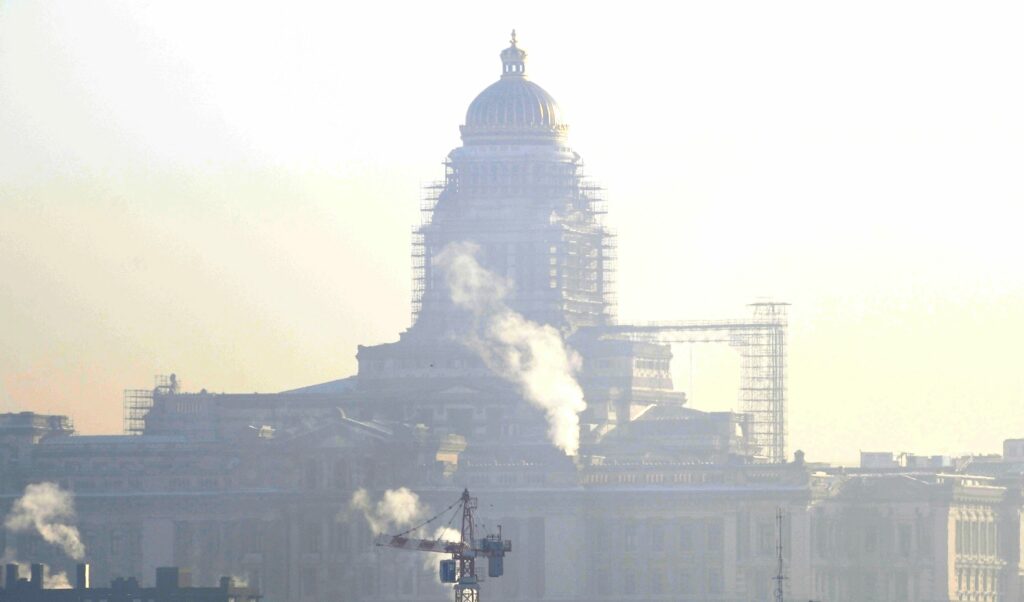Air pollution in Brussels has decreased significantly in the past decade, driven by a wide range of measures and developments. While cleaner air is a welcome evolution for residents' health, experts warn further efforts remain necessary to save lives.
Brussels is one of the most polluted cities in Europe, leading to hundreds of premature deaths and reduced life expectancy, as well as carrying significant economic costs for society.
Yet the quality of air across of the Brussels-Capital Region has improved significantly since 2013 and over the last 10 years. In the last five years, nitrogen dioxide (NO2) concentrations – one of the pollutants with the highest documented impact on human health – dropped remarkably, by 40%.
"In the Brussels Region, half of the NO2 emissions come from road transport, and especially from diesel vehicles, which emit much more nitrogen oxide than other vehicles (petrol, gas, electric)," Olivier Brasseur, a Brussels Environment Air Quality expert, told The Brussels Times. This means the drop in emissions can largely be explained by the fact that road traffic pollution has decreased significantly.
Brasseur noted this is thanks to technological improvements in vehicles, which has seen them become less polluting; changes in the composition of the vehicle fleet, with diesel cars becoming outnumbered by less-polluting vehicles due to higher fuel prices; and the Low Emission Zones (LEZ), introduced in 2018 throughout Brussels, progressively eliminating the most polluting vehicles and ensuring residents breath cleaner air.
All pollutants down
These factors combined have resulted in all European limit values and 2023 targets being met in Brussels. The measurements of air pollutants carried out in 2023 at the 11 monitoring stations of the Brussels telemetry network showed annual concentrations of nitrogen dioxide (NO2) and fine particles (PM10 and PM2.5), the pollutants most responsible for premature deaths and illnesses ranging from cardiovascular diseases to asthma, decreased by about 10% between 2022 and last year.
The target value for ozone (O3) set by Europe was respected in 2023 in Brussels, but the daily value recommended by the World Health Organisation (WHO), which is stricter than the current European limit, was not respected at any station in the region.

Credit: Belga/ Nicolas Maeterlinck
For sulphur dioxide (SO2) and carbon monoxide (CO), the results were very encouraging: the current values have been largely respected in Brussels for 10 years, while the values recommended by the WHO are also respected in 2023, as are the proposed European limits for 2030.
Black carbon concentrations (BC) dropped sharply in recent years, however, Brussels Environment stressed this pollutant is not regulated by Europe, while the WHO does not provide recommended values.
More work needed
As around 50% of citizens' health depends on their environment, including air quality, Brasseur welcomed the very important evolution that has been recorded when it comes to ensuring Brussels residents are breathing cleaner air. However, he stressed that the work does not stop there.
Now the current European values are respected in many places, the new challenge is to reach the new European values for 2030 (for PM2.5 and NO2, for example, the annual limit values are to be more than halved from 25 µg/m³ to 10 µg/m³ and from 40 µg/m³ to 20 µg/m³ respectively, as well as the values recommended by the WHO, which are still largely being exceeded "by a wide margin".
Compliance with the values recommended by the WHO will require further reductions in emissions at a local level, particularly in the transport sector, but also drastic reductions at the European and even hemispheric level.
"We must continue to push to stay under these lower limits," Brasseur said, adding that a crucial part of attaining this goal will be maintaining the LEZ and pushing forward with planned restrictions – firstly, Euro-5 diesel, Euro-2 petrol vehicles and Euro-3 motorcycles will be banned from entering the region from 2025.
Related News
- Car(e)less Brussels: The return of Europe's largest Car-Free Sunday
- Over 600,000 Belgian cars to be banned from Brussels after tightening of LEZ
- 'No parking, no business?': Only 17% of shoppers visit Brussels shops by car
The planned tightening of rules has drawn criticism both from politicians and mobility organisation Touring. The Brussels faction of the French-speaking socialist party PS wants to delay the move arguing it is not sustainable for lower-income households – . It warned the renewal of the car fleet is not progressing at the same pace as the LEZ countdown, which it said could lead to 33,000 diesel cars in Brussels being banned from 1 January 2025.
Yet Brasseur was steadfast in what is needed. "We must stick to what we are doing now and persevere, because only by doing this will we get close to reaching the 2030 European standard and ensuring healthy air quality."

